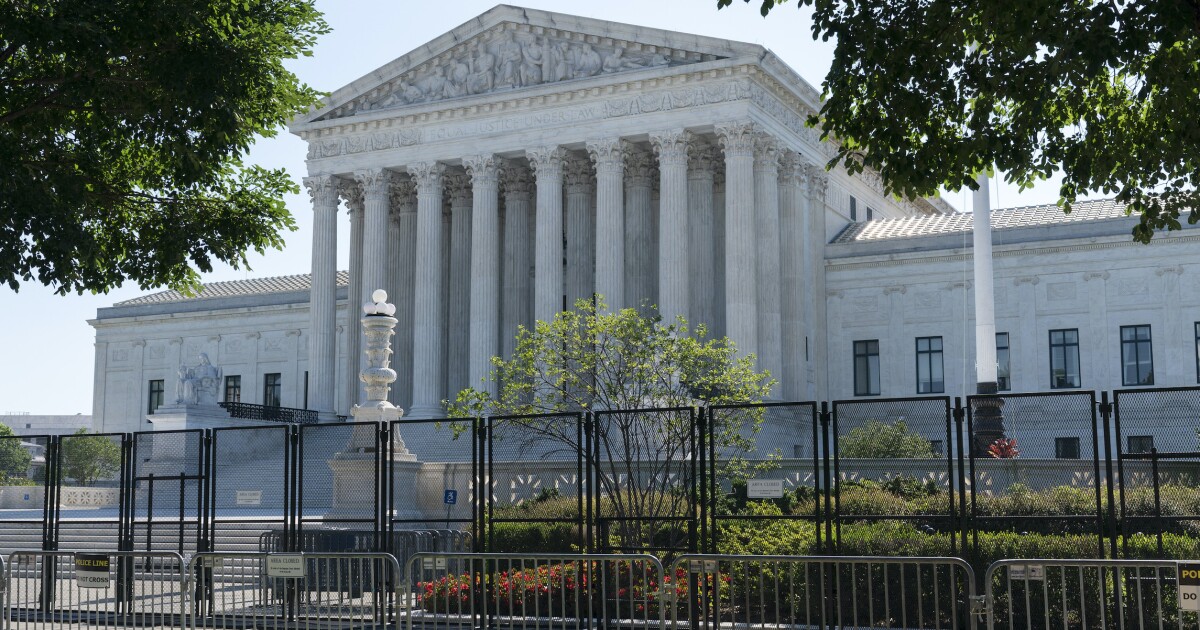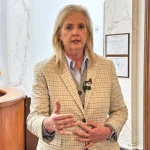

The anti-abortion movement needs to have conversations about “hard topics” such as affordable child care, parental leave, and streamlining adoption processes after the Supreme Court struck down Roe v. Wade in Dobbs v. Jackson Women’s Health Organization, said Mississippi Attorney General Lynn Fitch.
SCOTUS VOTES TO OVERTURN ROE V. WADE, PAVING THE WAY FOR STATE ABORTION BANS
Fitch has been described as the architect of a case concerning a Mississippi law banning abortion after 15 weeks that prompted the court to strike down Roe and Planned Parenthood v. Casey, which legalized abortion nationwide. In Dobbs, the court found that there is no constitutional right to an abortion, making the legality of the issue a matter for individual states.
Fitch this week discussed the Dobbs aftermath with Sen. Marsha Blackburn on the Tennessee Republican’s podcast, Unmuted.
“Now that we actually have the decision, so what does the post-Roe world look like?” Fitch said on the podcast with Blackburn. “Well, we have to work together. And so the team and I, along with many other partners, legislators, we’re looking at things that we have to have a very strong conversation about. And they’re hard topics.”
Fitch said those topics include quality and affordable child care, workplace flexibility, maternity leave, and paternity leave.
“We certainly have to talk about enforcement of child support because, again, mothers for too long have worn the majority of the costs, and it’s time to be there to help them, empower them, upscale them,” she said. “And that’s very key.”
Fitch added, “We have to talk about how we streamline adoption processes and then how we look at the foster care system.”
“Because again, there’s some incredible loving families out there that are ready to take these children in, to love them and to put them in an environment where they really will thrive,” she said.
Blackburn concurred, telling Fitch, “You are so right about that.”
Fitch said that in arguing the case, she and her team knew to need a strategic plan about how to get the case before the Supreme Court, and then win it.
“We asked the hard question, overturn Roe v. Wade, that had never been posted up in such a manner for the justices to review,” Fitch said. “And when they did, I think it was an opportunity for them to truly embrace, ‘Hey, this, the Constitution did not confer this right?’ And so, it is an opportunity to return it back to the states.”
CLICK HERE TO READ MORE FROM THE WASHINGTON EXAMINER
After the Dobbs decision drastically changed federal abortion law, both opponents and supporters appeared eager for Congress to enshrine their preferred policy on the procedure into law. But despite Democratic control of both chambers of Congress and the White House, a bill supported by abortion-rights activists, the Women’s Health Protection Act, failed in the Senate earlier this year when it could not clear the chamber’s 60-vote filibuster threshold.
It was not immediately clear what, if any, bills might be attempted by Republicans, who remain the minority in both the House and Senate.





